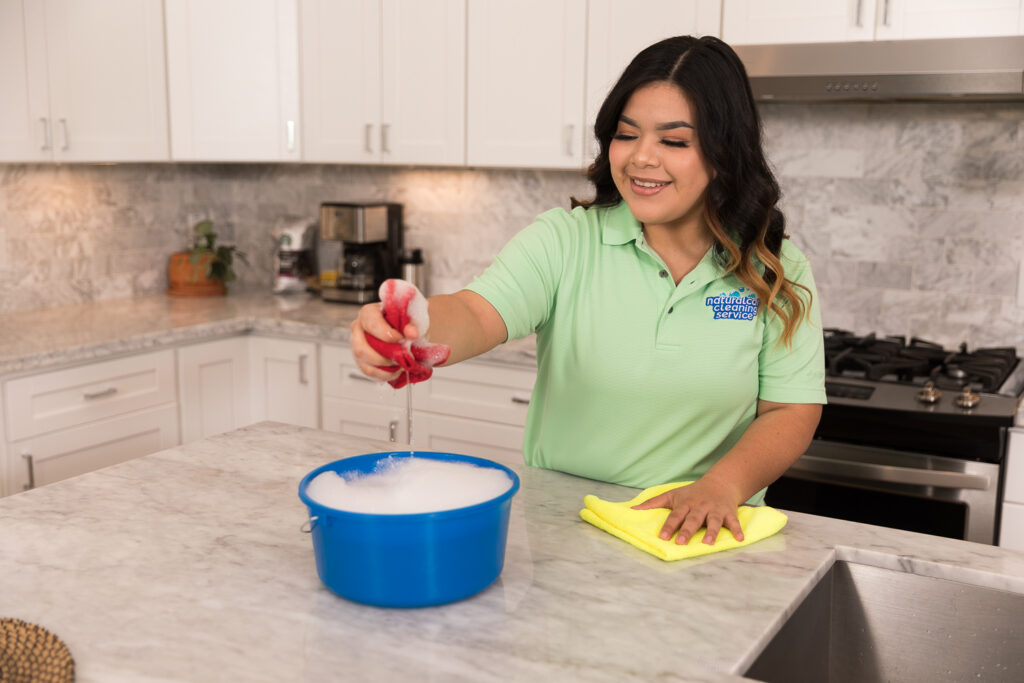
Deep cleaning goes beyond the surface and aims to eliminate dirt, grime, and germs from every nook and cranny of a living space. But what exactly is the science behind this thorough cleaning process? Understanding the principles and techniques behind deep cleaning can help us achieve cleaner, healthier environments.
With the help of professional Houston deep cleaning services, we delve into the realm of microbiology, chemistry, and physics. It involves the removal of visible dirt and the eradication of invisible microorganisms that may pose health risks. In this article, we will explore the science behind deep cleaning, focusing on the effectiveness of disinfectants in combating germs and creating hygienic spaces. Read on!
What is the science behind disinfectants?
Disinfectants are essential in the deep cleaning process as they help eliminate harmful bacteria, viruses, fungi, and other microorganisms. The science behind disinfectants is multifaceted and essential for an effective process. By understanding how disinfectants work and selecting the right ones for specific applications, we can ensure thorough and targeted disinfection, creating clean and hygienic environments.
The role of disinfectants
Deep cleaning aims to thoroughly clean and sanitize surfaces, eliminating pathogens and creating a hygienic environment. Disinfectants play a crucial role in this process by effectively reducing the microbial load on surfaces. They work by targeting the structure and function of microorganisms, rendering them unable to survive or reproduce.
Selecting the right disinfectants
Not all disinfectants are created equal, and different ones have varying effectiveness against specific pathogens. When selecting a disinfectant, consider the following factors:
- Broad-spectrum activity: Look for disinfectants that have a broad spectrum of activity, capable of eliminating a wide range of pathogens. This ensures comprehensive protection against various microorganisms commonly found in different settings.
- Effectiveness against targeted pathogens: Consider the specific pathogens you want to target. Some disinfectants may be more effective against bacteria, while others may be better at inactivating viruses or fungi. Refer to the disinfectant’s label or manufacturer’s instructions for information on its effectiveness against specific pathogens.
- Contact time and residual activity: The contact time required for a disinfectant to be effective may vary. Some disinfectants may require longer contact times, while others may work more quickly. Additionally, consider whether the disinfectant provides residual activity, meaning it continues to protect surfaces after application.
- Compatibility with surfaces: Ensure that the disinfectant you choose is compatible with the surfaces you need to clean. Some disinfectants may be harsh and can damage certain materials, such as sensitive electronics or delicate fabrics. Always follow the manufacturer’s guidelines to avoid any potential damage.
- Safety considerations: Take into account the safety considerations associated with the disinfectant. Some disinfectants may have specific handling instructions, ventilation requirements, or potential health hazards. It is important to use them in well-ventilated areas and follow safety guidelines to protect yourself and others.
Who are the go-to Houston deep cleaning services?

Whether you require a one-time deep cleaning or regular maintenance, Naturalcare Cleaning Services has you covered. From performing a thorough spring cleanup to an efficient move in clean, our pros have every aspect of the job covered.
We understand that a tidy and organized space contributes to a healthy and enjoyable environment of your home near the Houston Zoo or another part of the city. With our top-quality supplies, advanced techniques, and commitment to excellence, we strive to transform your space into a spotless and inviting sanctuary. So sit back, relax, and let our experts handle the housekeeping while you focus on what matters most to you. Reach out to us today!
